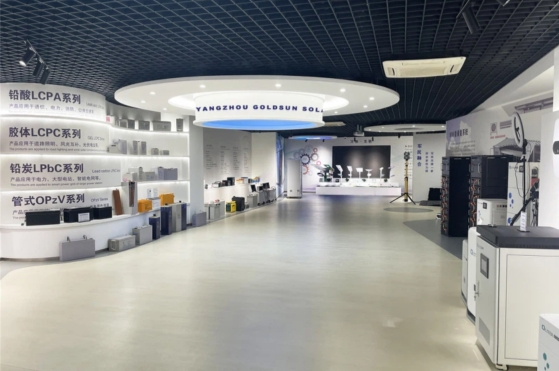Why are lithium-ion batteries better for solar street lights?
Enhanced Energy Density and Performance
Lithium-ion batteries have become the preferred choice for solar street lights due to their superior energy density. This characteristic allows them to store more energy in a smaller, lighter package compared to traditional battery types. The high energy density of lithium-ion batteries translates to longer operating times and brighter illumination for solar street lights, ensuring consistent performance throughout the night.
Moreover, lithium-ion batteries exhibit excellent discharge characteristics, maintaining a steady voltage output as they discharge. This feature ensures that solar street lights powered by lithium-ion batteries maintain consistent brightness levels throughout their operational period, unlike some other battery types that may dim as their charge depletes.
Temperature Resilience and Durability
Another significant advantage of lithium-ion batteries in solar street lights is their resilience to temperature fluctuations. These batteries can operate efficiently in a wide range of temperatures, from frigid winters to scorching summers. This temperature tolerance makes lithium-ion-powered solar street lights suitable for diverse climates and geographical locations.
Furthermore, lithium-ion batteries are known for their durability and resistance to wear and tear. They can withstand numerous charge and discharge cycles without significant degradation in performance. This durability contributes to the overall longevity of solar street lighting systems, reducing the frequency of battery replacements and associated maintenance costs.
Longer lifespan & efficiency: How Li-ion improves solar lighting
Extended Operational Life
One of the most compelling advantages of lithium-ion batteries in solar street lights is their extended operational life. These batteries typically last between 5 to 8 years, significantly outlasting traditional lead-acid batteries. This longevity translates to reduced replacement frequency, lower maintenance costs, and improved reliability of the lighting system over time.
The extended lifespan of lithium-ion batteries also contributes to the sustainability of solar street lighting solutions. By reducing the need for frequent battery replacements, these systems minimize waste generation and the environmental impact associated with battery disposal and replacement manufacturing.
Improved Charging Efficiency
Lithium-ion batteries exhibit superior charging efficiency compared to other battery types. They can quickly absorb and store energy from solar panels, making the most of available sunlight, even in less-than-ideal weather conditions. This high charging efficiency ensures that solar street lights can operate reliably, even in areas with limited sun exposure or during cloudy periods.
Additionally, lithium-ion batteries have a lower self-discharge rate, meaning they retain their charge more effectively when not in use. This characteristic is particularly beneficial for solar street lights, as it ensures that energy captured during the day is available for use at night, maximizing the system's overall efficiency and reliability.
Comparing lithium-ion vs. lead-acid batteries in solar street lights
Weight and Size Advantages
When comparing lithium-ion batteries to traditional lead-acid batteries in solar street lights, one of the most noticeable differences is in weight and size. Lithium-ion batteries are significantly lighter and more compact than their lead-acid counterparts, offering the same or greater energy storage capacity in a smaller package. This reduction in weight and size has several advantages for solar street light design and installation.
The compact nature of lithium-ion batteries allows for more flexible and aesthetically pleasing street light designs. It also simplifies the installation process, reducing labor costs and enabling easier retrofitting of existing street light infrastructure. The lighter weight of lithium-ion batteries also puts less stress on mounting structures, potentially extending the lifespan of the entire lighting system.
Maintenance and Total Cost of Ownership
While the initial cost of lithium-ion batteries may be higher than lead-acid batteries, their long-term benefits often result in a lower total cost of ownership for solar street lights. Lithium-ion batteries require minimal maintenance compared to lead-acid batteries, which often need regular water top-ups and more frequent replacements. This reduction in maintenance needs translates to lower operational costs over the life of the lighting system.
Furthermore, the longer lifespan of lithium-ion batteries means fewer replacements are needed over time. When combined with their higher efficiency and better performance in diverse environmental conditions, lithium-ion batteries prove to be a more cost-effective solution for solar street lighting in the long run. The reduced need for maintenance and replacements also minimizes system downtime, ensuring more consistent and reliable street lighting for communities.
In conclusion, solar street lights with inbuilt lithium-ion batteries offer a myriad of benefits that make them an excellent choice for modern urban lighting solutions. From enhanced energy density and improved efficiency to longer lifespans and reduced maintenance needs, these systems provide a sustainable, cost-effective, and reliable lighting option for diverse applications. As cities and communities worldwide strive for more sustainable infrastructure, solar street lights with lithium-ion batteries stand out as a beacon of innovation in urban illumination. For more information on how our solar street light solutions can benefit your project, please contact us at solar@gdsolarlight.com.



